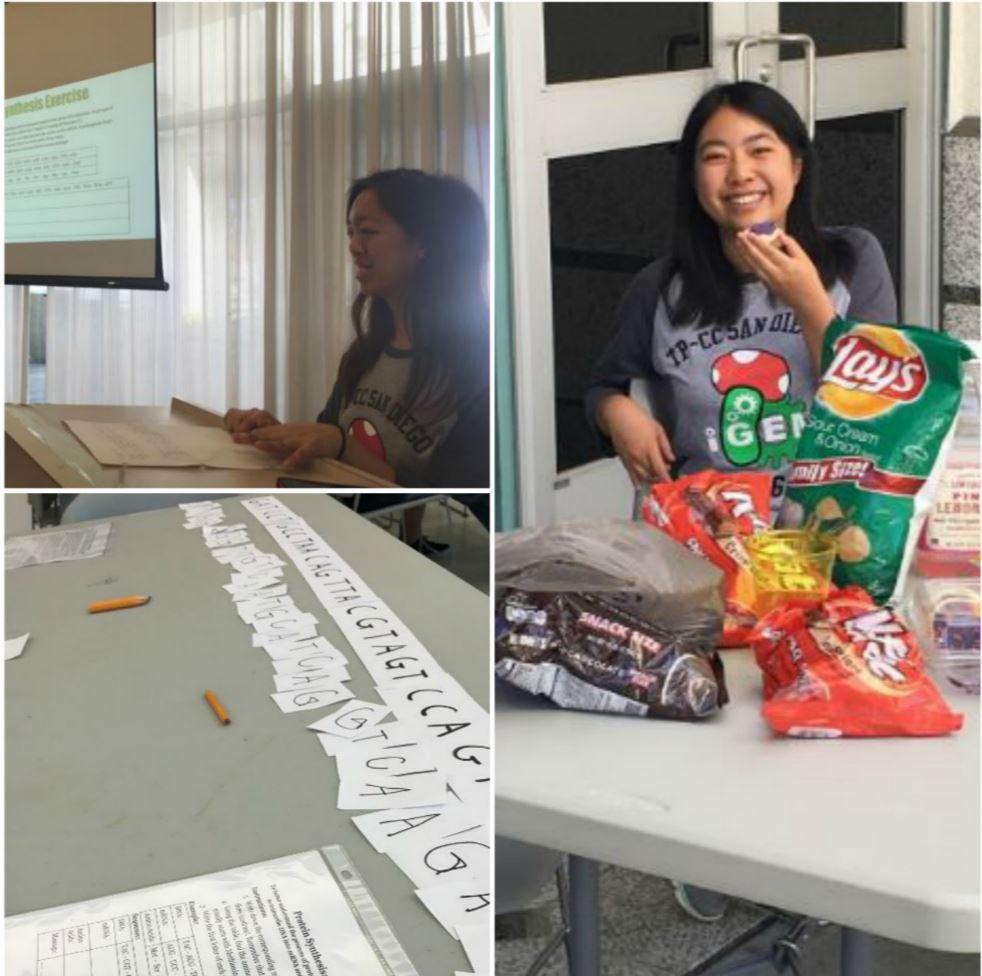OUTREACH
CARMEL VALLEY LIBRARY LECTURE
On October 9th, as a part of our outreach efforts, we held a 3-hour workshop at the Carmel Valley Library that educated young kids from grades 5-9 on the basics of synthetic biology. The presentation included topics such as DNA structure, DNA replication, PCR, protein synthesis, and plasmids. In order to make the workshop interactive, we included hands-on activities that allowed kids to better understand how DNA bases are paired during DNA replication and how ribosomes translate RNA to construct proteins. We also introduced them to what iGEM is and explained how and why synthetic biology is so important for our future. At the very end of our presentation we quizzed the kids on what they had learned. Overall, those who attended the workshop enjoyed it, and it sparked a genuine interest for many in the synthetic biology field.

On October 25th, we gave a similar lecture at the La Jolla Riford Library.

GARDEN OF HOPE
This year we collaborated with the Torrey Pines Gardening Club to inform its members on the importance of synthetic biology for agricultural purposes and, specifically, the real life applications of our project. In the past few years, the

CURRICULUM
The purpose of our curriculum is to foster people’s interest in synthetic biology in our community. Prior to this year, our team was the only high school iGEM team in the entire city of San Diego. As a result, we created “How To Make An iGEM Team” videos in order to provide other high schools a resource to create their own teams. Through our videos, we have influenced the formation of iGEM teams at Canyon Crest Academy and San Dieguito Academy, both local high schools in San Diego. This year, we have compiled a general guidebook and a guide to basic lab protocols and procedures to assist new iGEM teams. Beyond our mission of increasing high school participation in iGEM in our area, we hope to increase elementary and middle school students’ exposure to synthetic biology. This can be done through demonstrations of basic lab protocols and procedures, as well as lectures on basic synthetic biology knowledge. In particular, interactive, hands-on experiences can generate great interest in young minds. By presenting these opportunities, we can help cultivate their interest in biology at a young age. We also expanded on our curriculum with more resources online to learn from.
Guidebooks:
General Guidebook
Lab Protocols
Lab Protocols and Procedures:
Transcription/Translation
PCR
Plasmid Digestion
Transformations
Inverse PCR
Primer Design
Promoter Regions
Library Workshop
Presentation Slides
Interactive Worksheet #2

